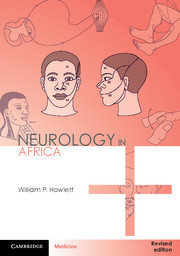1 - History and Examination
from Part I
Summary
Introduction
Neurology relies on the fundamental skills of history taking and physical examination. The aim of this section is to help the medical student to learn the basic clinical skills necessary to carry out a neurological history and examination and interpret the findings. Most students find neurology difficult to remember and in particular what to do, how to do it and what it all means. The history is the most important part of neurological evaluation because it is a guide to the underlying disease and also determines which part of the examination needs to be focused on. Indeed many neurological diseases like migraine have symptoms but no abnormal signs. The neurological examination determines abnormal neurological findings and helps to localize the site of the disease (Chapters 2 & 12). The history, examination and localization all together help to determine which disease has occurred at that site. The necessary competence required to carry out these tasks is formed by a combination of knowledge, skills and experience. Neurological knowledge is mostly self learned while clinical skills are taught at the bedside and experience gained over time. The nervous system by its nature is complex but its assessment can be learned with patience, plenty of practice and time.
HISTORY TAKING
Introduction
The history is the most important part of the neurological assessment. The student should aim to be a good listener showing interest and sympathy as the patient's story unfolds. It is important to get the patient's trust and confidence. First introduce yourself to the patient, explain who you are and ask permission to take a history and to carry out an examination. Find out the patient's name, age, address, occupation. Determine handedness by asking which hand do you write with or use more often. Some clinical findings are apparent to the examiner during history taking; these include general state of health and obvious neurological deficits and disabilities. If there is alteration in the level of consciousness or the patient is unable to give a history then it may be necessary to obtain a history and witnessed account from a relative or friend before proceeding directly to neurological examination. The patient's history reveals his personality, intelligence, memory and speech and his body language his attitude and mood.
- Type
- Chapter
- Information
- Neurology in AfricaClinical Skills and Neurological Disorders, pp. 13 - 42Publisher: Cambridge University PressPrint publication year: 2015



